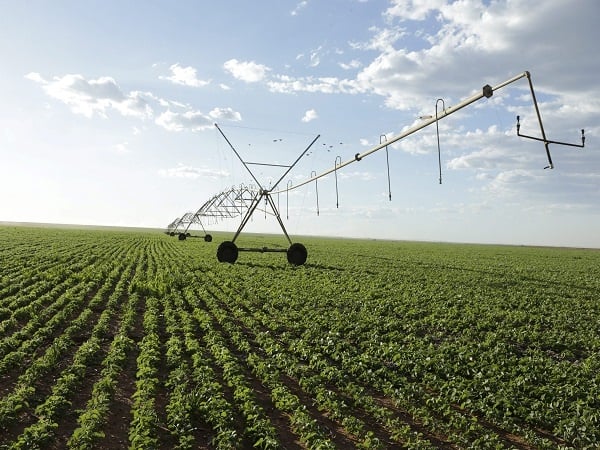
- Government has proposed that water licences must include requirements for black shareholding.
- It says that this will only be for new licences, and must address the inequitable allocation currently.
- But AgriSA insists that existing licences will also be affected - and it is ready to take legal action.
- For more financial news, go to the News24 Business front page.
The proposed changes to water use licensing will not affect existing water use licences and are aimed only at new applications, says the Department of Water and Sanitation.
AgriSA, a body representing most of the country's commercial farmers, has insisted the draft proposals would be "devastating" for the country's food security and the farming community should they be passed.
"The purpose of the amendments is to effect reforms in relation to equitable allocation of water use, as well as to amend the procedural requirements related to applications of new water use licences, including reviewing of timeframes and fees linked to licence application processes," said Wisane Mavasa, spokesperson for the Department of Water and Sanitation.
The proposed changes require applicants for new lawful water use licences to have black equity representation in their operations to be successful in their applications. On Tuesday, Mavasa said the current licence holders would be required to comply with the new regulations only when applying to renew expired licences.
But AgriSA disagrees.
Janse Rabie, the legal and policy head of AgriSA, told News24 government has confirmed to them that even existing licences will have to be converted and must comply with the new regulations.
"The government has said it would force existing licence holders to apply for new licences," said Rabie. "The department is saying to us it will compel current licence holders to apply for new licences in the not-too-distant future. There's nothing specific about the timetable at this point, the regulations can change any time. This is a drastic and radical change that will have devastating consequences for food security and farming in the country."
Rabie said the government has previously told AgriSA that it is busy verifying the existing lawful water use licences, and that once that process is completed it will then move to compulsory lawful water licences for existing users as well.
"Farmers are worried it is not going to be possible for them to meet the (proposed) black shareholding requirements." It is thus necessary to take into account all the other processes that are already under way to transform the country's society, said Rabie.
Published in the Government Gazette on 19 May, the new procedural requirements propose applicants must have up to 75% shareholding by black investors to secure a lawful water use licence of more than 1 million cubic metres of water, or for 1 000 hectares of land.
Entities requiring a licence for 500 000 - 1 million cubic metres (or 500 - 1 000 hectares) should have black equity representation of 50%. Those applying for licences for 250 000 - 500 000 cubic metres (or 100 - 500 hectares) are required to have 25% black shareholding. Licences for lower requirements are exempted from the black equity representation.
Stakeholders have until 18 July to make comments and submissions for consideration before the final regulations are adopted as a procedural requirement as part of the National Water Act of 1998.
The department estimated that 98% of the country’s water resources were already allocated by 2004, with the majority of allocations being through the recognition of old water use entitlements, also known as the "Existing Lawful Water Use Licence (ELU)".
According to the department's statistics, 75.9% of issued water licences currently, or 313 million cubic metres of water, have already been allocated to white entities and individuals (historically advantaged individuals), while only 99 million cubic metres (less than a quarter) have been allocated black entities (historically disadvantaged).
Of the historic ELUs that were granted, 98.5% of water licences went to white entities.
Senzo Mchunu, the Minister of Water and Sanitation, said:
The regulations were last updated in 2017 and the proposal seeks to reduce the turnaround time for water use licence applications to 90 days, down from the current 300 days turnaround time.
Mchunu encouraged interested and affected stakeholders "to make constructive proposals" before the regulations are finalised on "this critical mandate of the Department," a challenge AgriSA intends to grab with both hands.
AgriSA will engage with the government on the proposed regulations "in a measured way, and we will obviously seek legal advice should they be finalised in their current form," said Rabie.
According to Rabie there is already a legal precedent in which the Supreme Court of Appeal has directed the government to consider eleven other measures (in addition to equity) to address the racial injustices of the past when pursuing transformation in agriculture. Said Rabie: "The government cannot simply ignore court decisions on this matter.
"There needs to be a measure of calm and rationality about these changes," said Rabie. "It cannot be radical and sweeping changes if it is to be good for investment in the sector. We cannot underplay the importance of a fair and equitable society."




 Publications
Publications
 Partners
Partners












